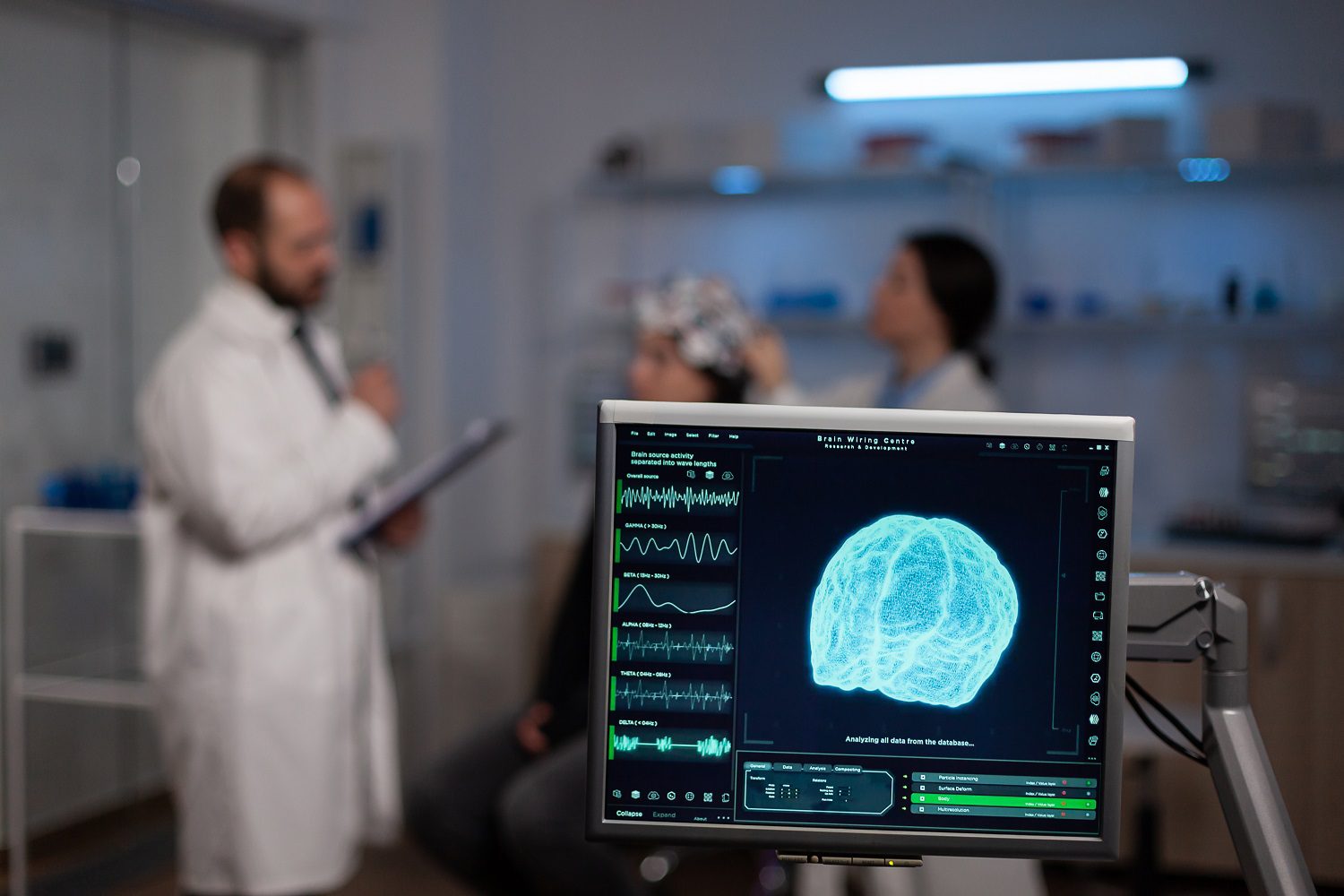Case Presentation
55‐year‐old female with COVID‐19 accompanied by mild respiratory symptoms showed delusion, psychomotor excitement, and poor communication ability during quarantine outside the hospital. Considering her diminished respiratory symptoms, her neuropsychiatric symptoms were initially regarded as psychogenic reactions. However, as she showed progressive disturbance of consciousness accompanied by an abnormal electroencephalogram.
Medical History
- She had been briefly admitted to a psychiatric hospital at age 16 years because of depressive symptoms, but she was never followed up or given treatment after discharge
- She had not received the COVID‐19 vaccine prior to infection
- During the quarantine period, she experienced insomnia, poor communication ability and depression due to the psychological burden of having COVID‐19.
Physical Examination
- Poor communication ability accompanied by catatonic features
- Dehydration symptoms
- Tachycardia
- Low‐grade fever
Laboratory Findings
- Consolidation in both lower lobes on lung computed tomography was observed.
- Increased inflammation markers in laboratory findings (white blood cell count, 11 700/μl; C‐reactive protein, 1.15 mg/ml).
- The level of several cytokines in the cerebrospinal fluid (CSF) and plasma was increased on hospital admission
- No abnormal findings were seen in several brain imaging tests
- No increased cell counts were observed in the CSF, and no SARS‐cov‐2 was found in the CSF by PCR.
- She subsequently showed progressive consciousness disturbance leading to akinetic mutism and found it nearly impossible to communicate.
- An electroencephalogram (EEG) showed a generalized slowing δ wave with frontal lobe dominance.
Diagnosis
- Laboratory findings led to a diagnosis of post‐COVID‐19 encephalopathy.
Treatment
- Three courses of steroid pulse therapy were started (three consecutive days with methylprednisolone 1000 mg per week), with reference to former reports.
- Brain single‐photon emission computed tomography findings were within the normal limits. Although she showed mild pulmonary embolism after starting steroid treatment.
- Her consciousness disturbance gradually improved.
- The slow EEG waves were decreased, as were the levels of several cytokines, including interleukin‐8 (IL‐8) and fibroblast growth factor‐2 (FGF‐2), in the CSF and plasma after the third course of steroid pulse therapy compared with at admission when she was able to communicate, she showed memory loss from the middle of the quarantine period.
Further Treatment
- When she began oral intake and getting out of bed by herself, she experienced weakness and unsteadiness while walking, as well as insomnia and a lack of concentration.
- An examination of these symptoms revealed postural tachycardia and impaired concentration; these residual symptoms are summarized in. A variety of antibody and physiological tests did not suggest any neuromuscular or collagen diseases.
- Administered fourth course of steroid pulse therapy for her neuropsychiatric symptoms, but no clear effect was seen.
Treatment Outcomes
Several sequelae persist, she was discharged on day 67. Her frontal lobe function, which could have been related to her impaired concentration, gradually improved until she was able to communicate with her family normally, however, she still could not start working for 3 months after discharge because she continued to experience several persistent neuropsychiatric symptoms.
Conclusions
This case suggests the importance of both recognizing that even apparently mild COVID‐19‐related respiratory symptoms can lead to severe and persistent neuropsychiatric symptoms, and elucidating the mechanisms, treatment, and long‐term course of COVID‐19‐related neuropsychiatric symptoms in the future.

